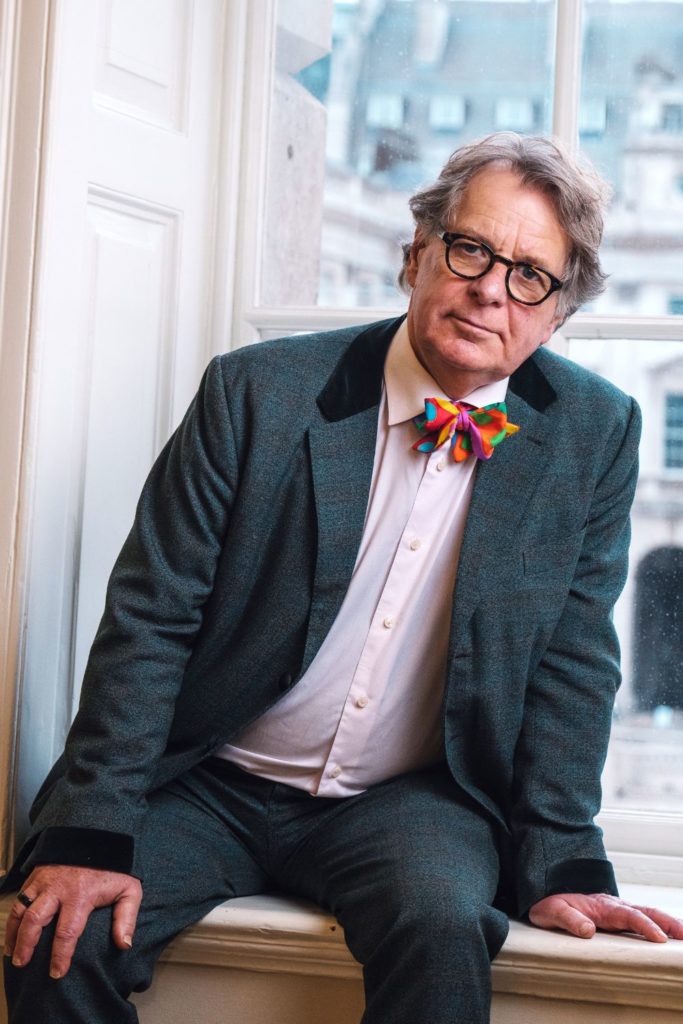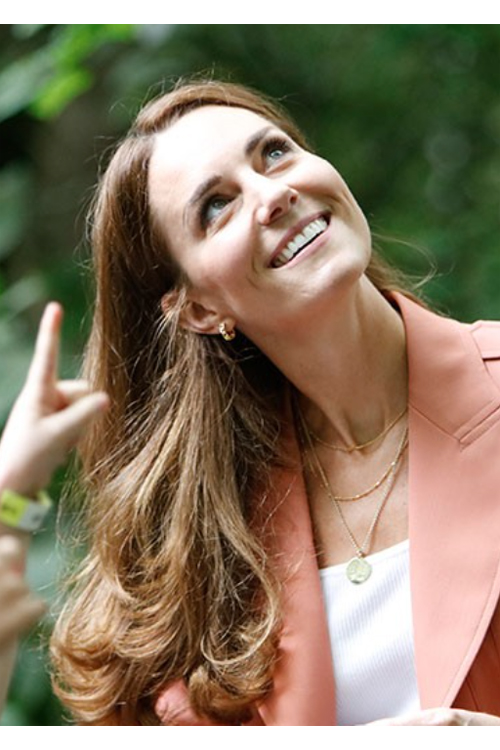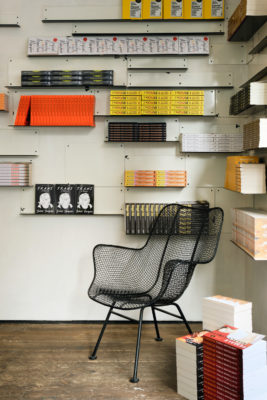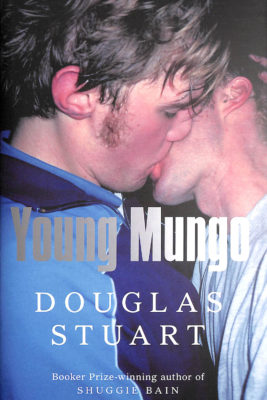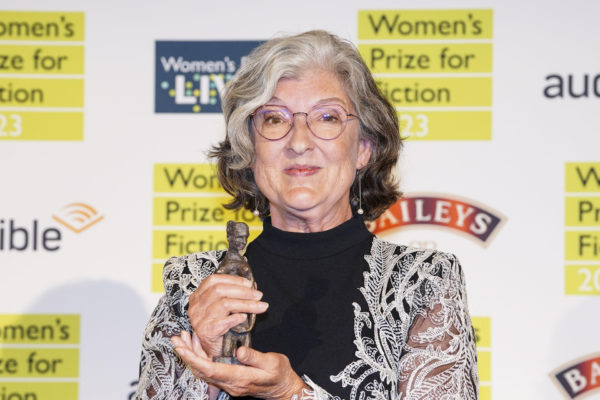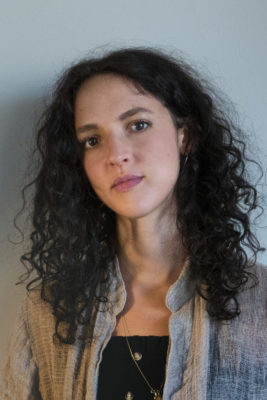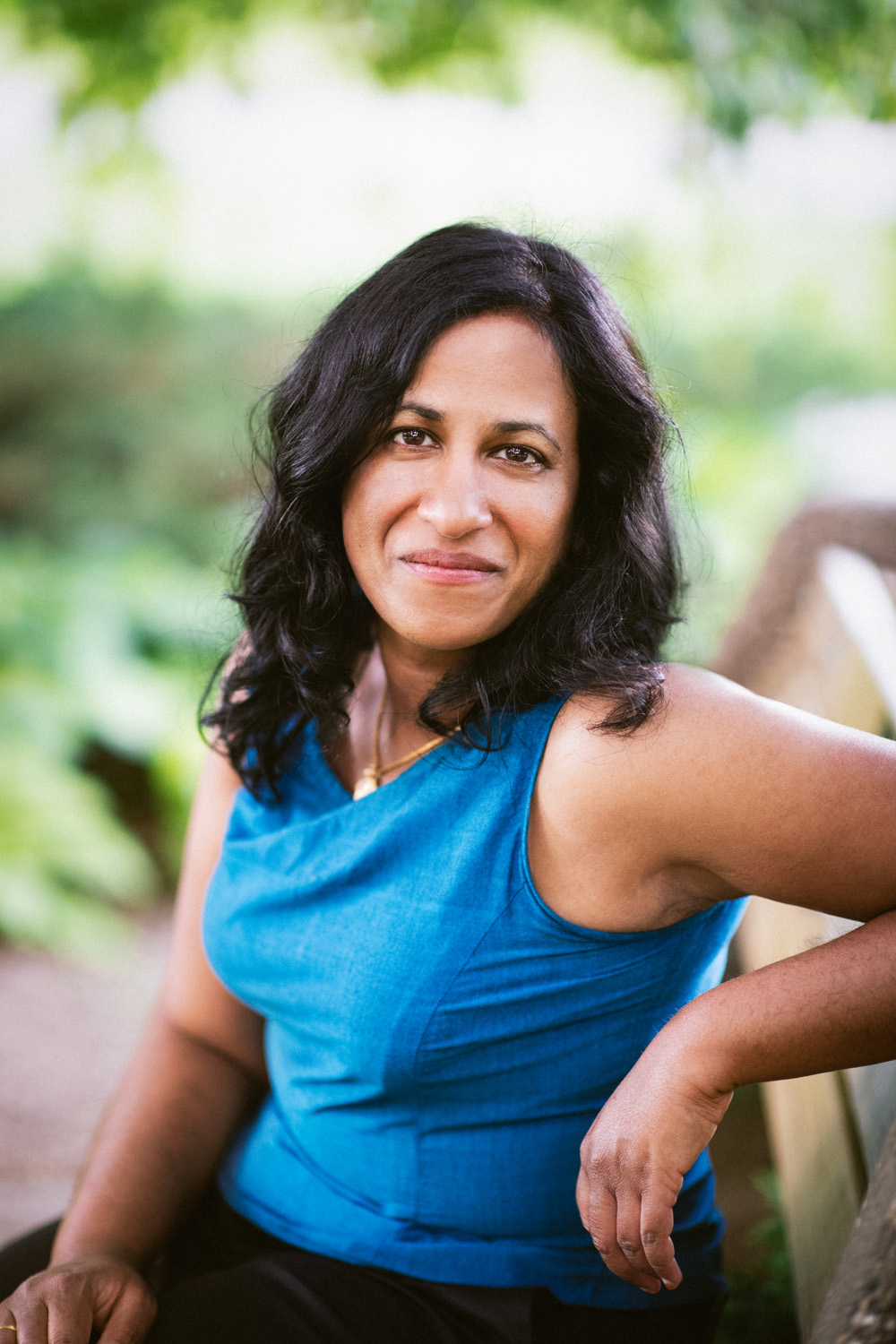
V V Ganeshananthan Wins The 2024 Women’s Prize For Fiction
By
10 months ago
Plus: who won the first ever Women's Prize for Fiction?
And we have a winner: V V Ganeshananthan has bagged the 29th Women’s Prize for Fiction with her novel, Brotherless Night. ‘Brotherless Night is a brilliant, compelling and deeply moving novel that bears witness to the intimate and epic-scale tragedies of the Sri Lankan civil war,’ says head judge Monica Ali. The news was revealed at a ceremony in London last night (13 June), along with the winner of the inaugural Women’s Prize for Non Fiction, which was scooped up by Naomi Klein for her book, Doppelganger.
Here’s a look back at all of the highly commended writers on the shortlists and longlists for 2024, with plenty of books to add to your reading list before details on the 30th edition of the Prize are revealed at the beginning of 2025.
The Women’s Prize 2024
Who Won The 2024 Women’s Prize For Fiction?
V V Ganeshananthan won the Women’s Prize for Fiction 2024 with her novel Brotherless Night. Ganeshananthan is an American novelist, essayist, and journalist of Ilankai Tamil descent, and Brotherless Night is her second novel. Her first novel, Love Marriage, was published in 2008, and was originally written as part of Ganeshananthan’s senior thesis at Harvard University. Ganeshananthan worked on Brotherless Night for nearly 20 years before it was published in January 2023.
Ganeshananthan joins a star-studded line-up of previous winners, recently including Ruth Ozeki for The Book of Form and Emptiness (2022), Maggie O’Farrell for Hamnet (2020), and Barbara Kingsolver who became the first writer to win the prize twice with her novel Demon Copperhead (2023); she also won in 2010 with The Lacuna.
View this post on Instagram
Since 1996, The Women’s Prize has been recognising women of any nationality for their English-language novels, published in the UK in the preceding year. The original inspiration for the award was the 1991 Booker Prize shortlist, a collection of six books written by men, despite the fact that 60 percent of the novels published that year were penned by women. Thirty years later, the Women’s Prize is one of the most prestigious literary prizes across the globe.
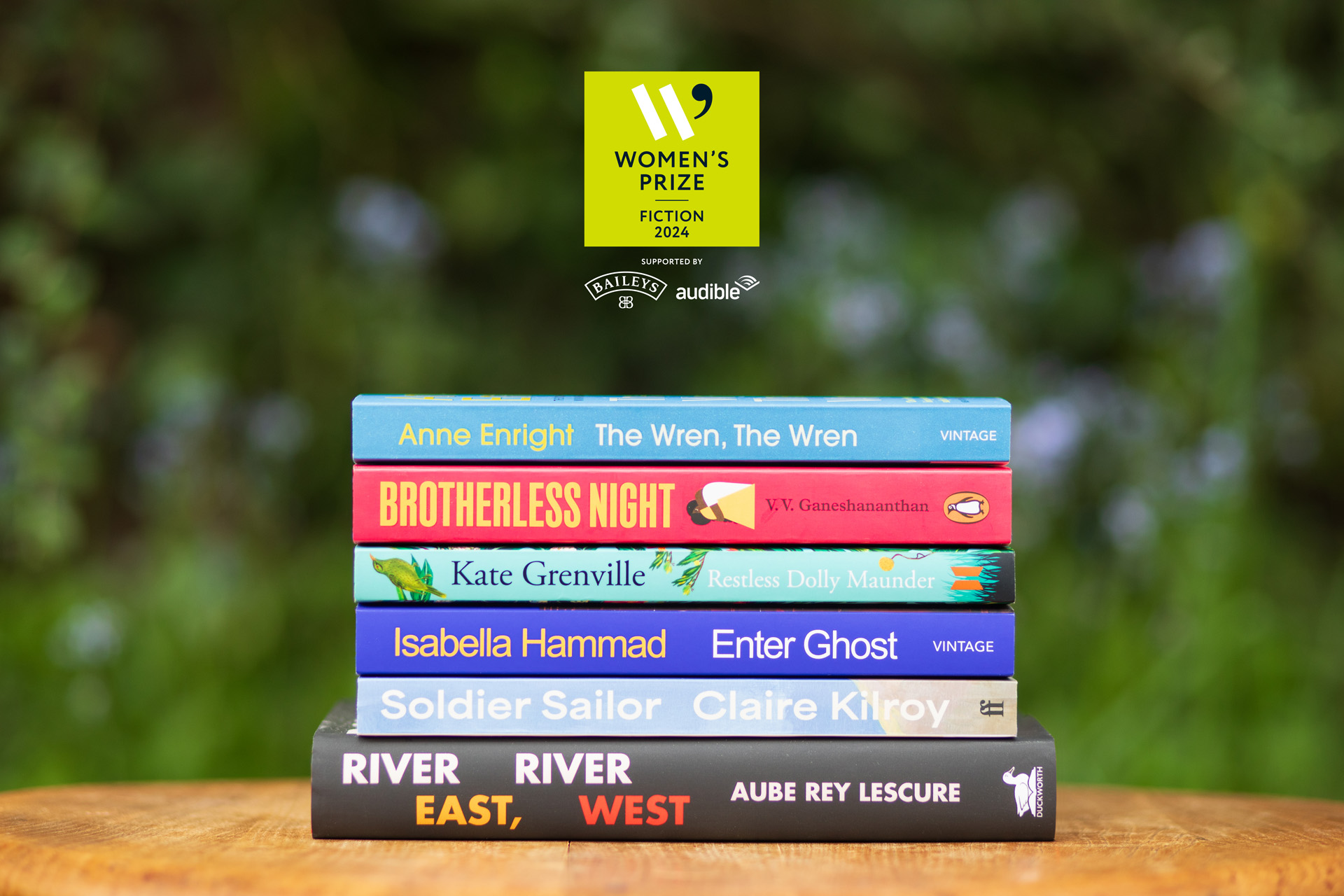
The 2024 Shortlist
The titles on the Women’s Prize for Fiction Shortlist 2024 were:
- The Wren, The Wren by Anne Enright
- Brotherless Night by V.V. Ganeshananthan
- Restless Dolly Maunder by Kate Grenville
- Enter Ghost by Isabella Hammad
- Soldier Sailor by Claire Kilroy
- River East, River West by Aube Rey Lescure
In a shortlist made up of two Irish, one British, one Australian, one American and one American-French authors, half are established novelists, two have one previous novel to their name, and one, Aube Rey Lescure, is a debut novelist. While three novels are published by independent houses, the other three are published by Penguin Random House.
This is the fifth time Anne Enright has been commended by the Women’s Prize, previously making it onto two longlists (2008, 2020) and two shortlists (2012, 2016). Kate Grenville previously won the Women’s Prize for Fiction in 2001 with The Idea of Perfection.
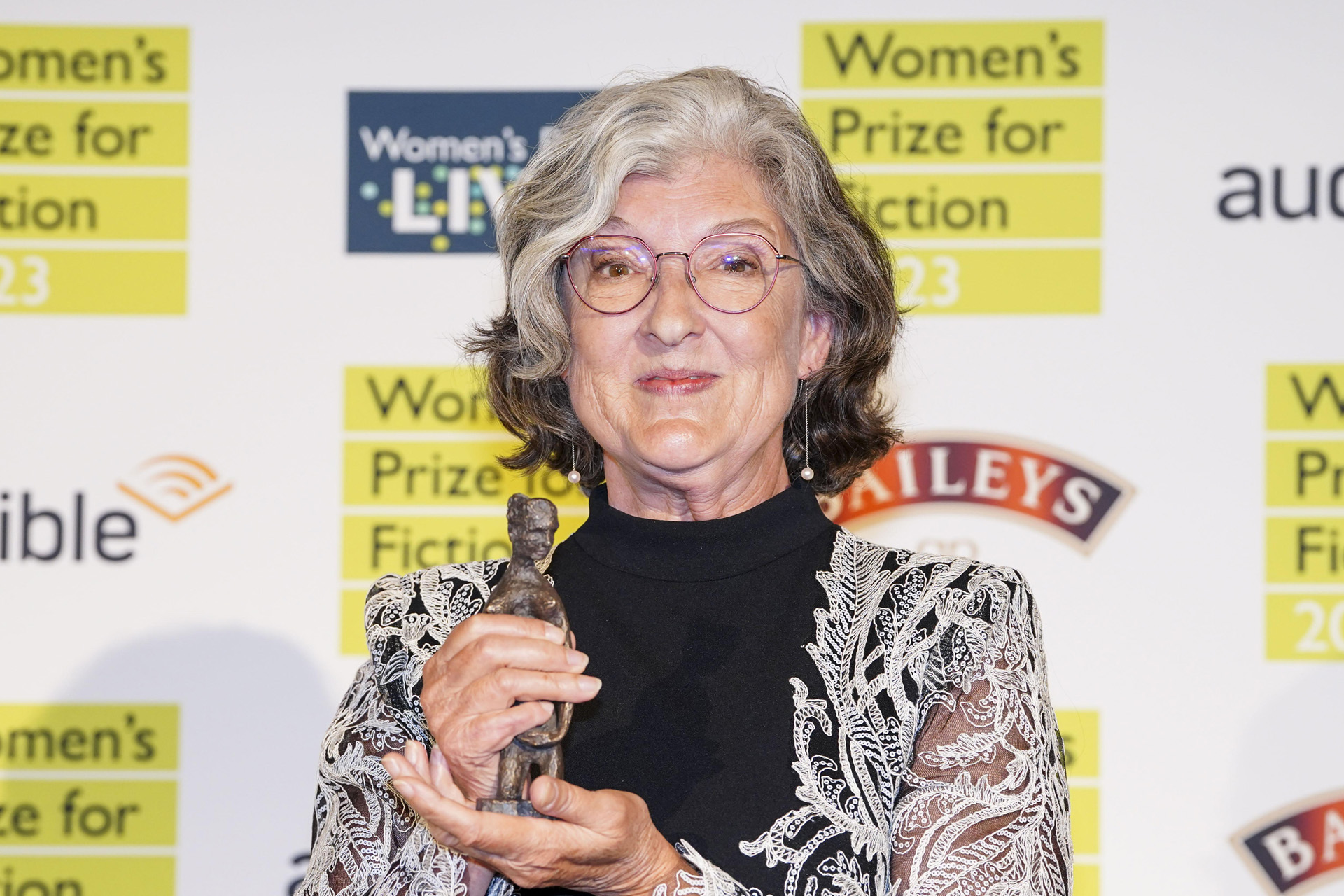
Barbara Kingsolver won the Women’s Prize for Fiction in 2023 for her novel, Demon Copperhead. © Ian West/PA Wire
‘This year’s shortlist features six brilliant, thought-provoking and spellbinding novels that between them capture an enormous breadth of the human experience,’ says Chair of Judges, Monica Ali. ‘Readers will be captivated by the characters, the luminous writing and the exquisite storytelling. Each book is gloriously compelling and inventive and lingers in the heart and mind long after the final page.’
The 2024 Longlist
As always, 16 titles made it to the Longlist for the Women’s Prize for Fiction 2024. Impressively, half of the Longlisted titles were are debut novels. The Longlisted books that sadly didn’t make the Shortlist are:
- Hangman by Maya Binyam
- In Defence of the Act by Effie Black
- And Then She Fell by Alicia Elliott
- The Maiden by Kate Foster
- 8 Lives of a Century-Old Trickster by Mirinae Lee
- The Blue, Beautiful World by Karen Lord
- Western Lane by Chetna Maroo
- Nightbloom by Peace Adzo Medie
- Ordinary Human Feelings by Megan Nolan
- A Trace of Sun by Pam Williams
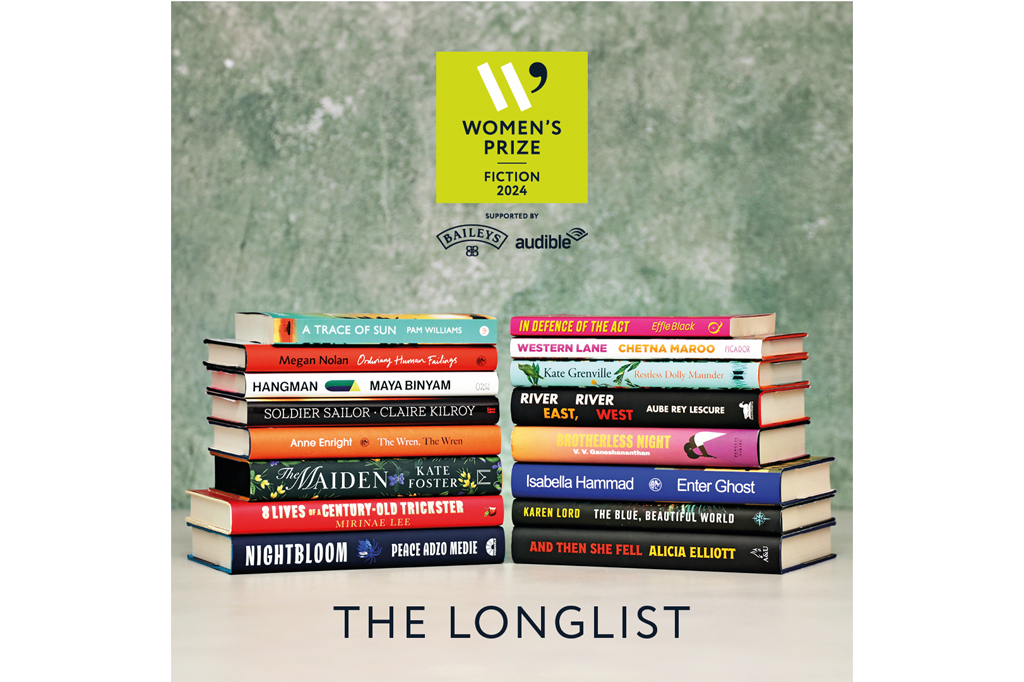
Brits made up the majority of nominees (five), followed by America and Ireland with three. Australian author Kate Grenville is longlisted for her ninth novel, Restless Dolly Maunder; she previously bagged the prize in 2001 for The Idea of Perfection. Meanwhile, Irish author Anne Enright is nominated for The Wren, The Wren, following her nominations in 2008, 2012, 2016 and 2020 – maybe this will be her year. American author V.V. Ganeshananthan has also previously been nominated for her debut novel Love Marriage in 2009.
‘With the strength and vitality of contemporary women’s fiction very much in evidence, reading the entries for this year’s Women’s Prize for Fiction has been a joyful experience,’ says Monica Ali, Chair of Judges. ‘Of course this made it all the more difficult to select the longlist, but after much lively discussion amongst the judges we are delighted with the 16 titles selected. Each one of these books is brilliant, original and utterly unputdownable. Collectively, they offer a wide array of compelling narratives from around the world, written with verve, wit, passion and compassion. They are books that will engage readers’ hearts and minds, they are filled with indelible characters, and they do what stories can do so powerfully: unsettle and disturb as well as surprise and delight.’
Who Won The 2024 Women’s Prize For Non-Fiction?
Naomi Klein won the inaugural Women’s Prize for Non-Fiction with her book, Doppelganger. Klein’s ninth book, Doppelganger traces her experiences after discovering that a woman who shared her first name, but had radically different, harmful views was getting chronically mistaken for her. Thus begins an exploration of identity, conspiracy theories and wellness influencers, lifting the lid on our own culture as we turn out outward-facing selves into polished brands.
View this post on Instagram
The Women’s Prize for Non-Fiction is brand new for 2024, and has been launched to amplify female voices in a category which often gets overlooked. Research found non-fiction books by women are less likely to be reviewed in the media and win prizes, with writers generally receiving lower advances.
Professor Suzannah Lipscomb, said: ‘There is a need to banish the lingering perception that non-fiction is men’s work by showing that authority and expertise are qualities that women possess in spades. This prize will shine a light on talented and often overlooked female writers creating brilliant, groundbreaking and revelatory work in genres that include history, science, philosophy, sport, nature, medicine, psychology and biography.’
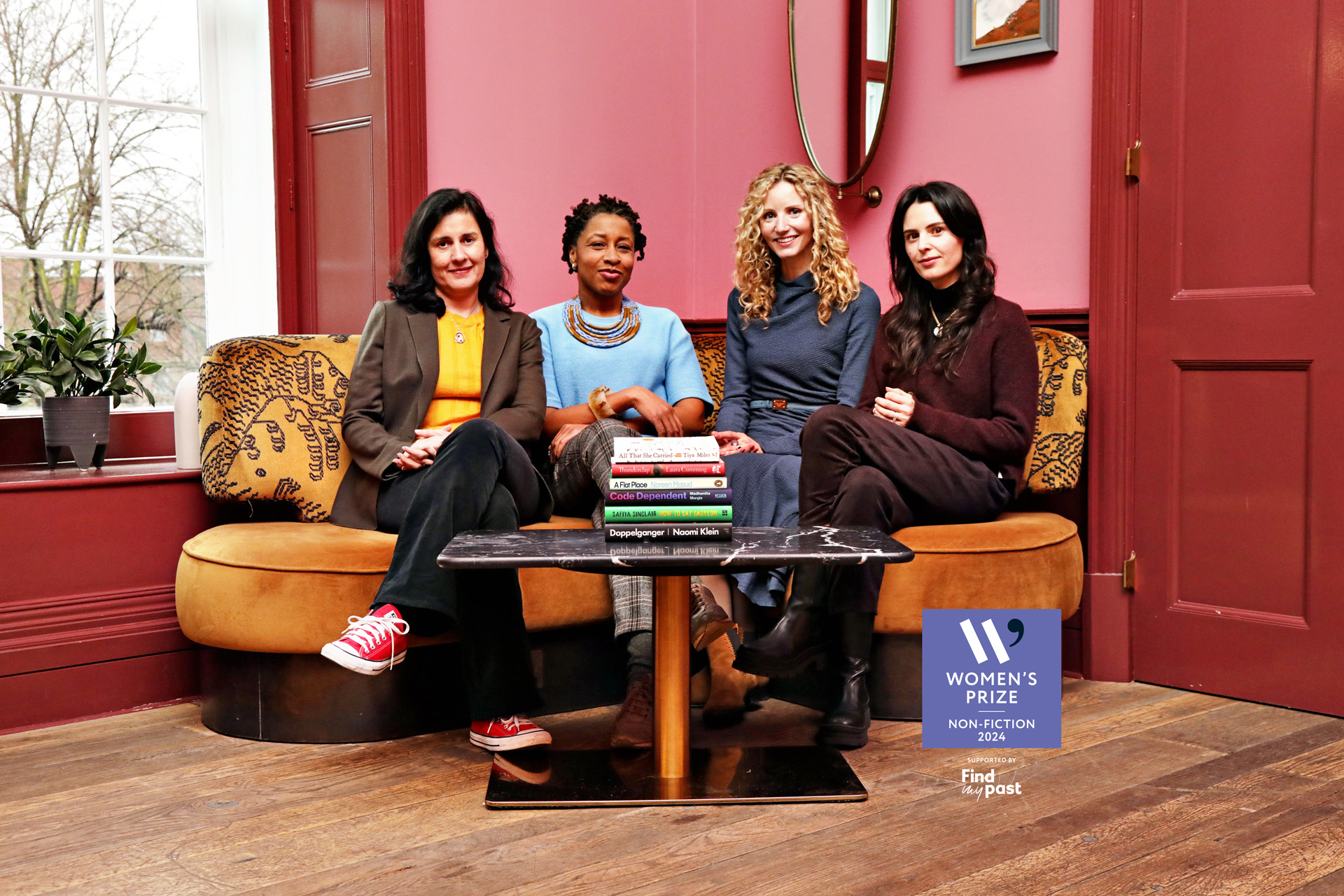
Women’s Prize for Non-Fiction Shortlist & the 2024 Judges
The Shortlist
When the shortlist was announced, Professor Suzannah Lipscomb, Chair of Judges, commented: ‘Our magnificent shortlist is made up of six powerful, impressive books that are characterised by the brilliance and beauty of their writing, and which offer a unique, original perspective. The readers of these books will never see the world – be it through art, history, landscape, politics, religion or technology – the same again.’
The titles on the Women’s Prize for Non-Fiction Shortlist 2024 were:
- Thunderclap by Laura Cumming
- Doppelganger: A Trip into the Mirror World by Naomi Klein
- A Flat Place by Noreen Masud
- All That She Carried by Tiya Miles
- Code Dependent: Living in the Shadow of AI by Madhumita Murgia
- How To Say Babylon: A Jamaican Memoir by Safiya Sinclair
Out of the six shortlisted authors, three are British, one is American, one is Jamaican and one is Canadian. Cumming, Klein and Miles are experienced non-fiction authors, while Code Dependent is Murgia’s debut, A Flat Place is Masud’s first work for a non-academic audience, and How To Say Babylon is Sinclair’s first piece of narrative non-fiction (she previously published an award-winning poetry collection titled Cannibal).
The Longlist
Sadly, 10 books did not make the Shortlist, but were commended with a place on the Longlist. They are:
- Intervals by Marianne Brooker
- Wifedom: Mrs Orwell’s Invisible Life by Anna Funder
- Shadows At Noon by Joya Chatterji
- Eve: How The Female Body Drove 200 Million Years of Human Evolution by Cat Bohannon
- Some People Need Killing by Patricia Evangelista
- The Dictionary People by Sarah Oglivie
- Vulture Capitalism by Grace Blakeley
- Young Queens by Leah Redmond Chang
- The Britannias: An Island Quest by Alice Albinia
- Matrescence by Lucy Jones
The Judging Panels
Chairing the Women’s Prize for Fiction award was author Monica Ali, known for books such as Brick Lane and the more recent Love Marriage. She was joined by two fellow authors: Ayòbámi Adébáyò (Stay With Me) and Laura Dockrill (You Are a Story), alongside actor Indira Varma (Luther), and presenter Anna Whitehouse, known as Mother Pukka on Instagram.
The Non-Fiction award, which made its debut this year, was chaired by historian and broadcaster Professor Suzannah Lipscomb. Also on the panel was author Kamila Shamsie, who won the Women’s Prize in 2018 for her novel Home Fire, and has since penned books like Best of Friends, a story about a friendship developed in a Pakistan school over 30 years. Also on the panel is fair fashion campaigner Venetia La Manna, broadcaster and journalist Anne Sebba, and academic and author Professor Nicola Rollock.
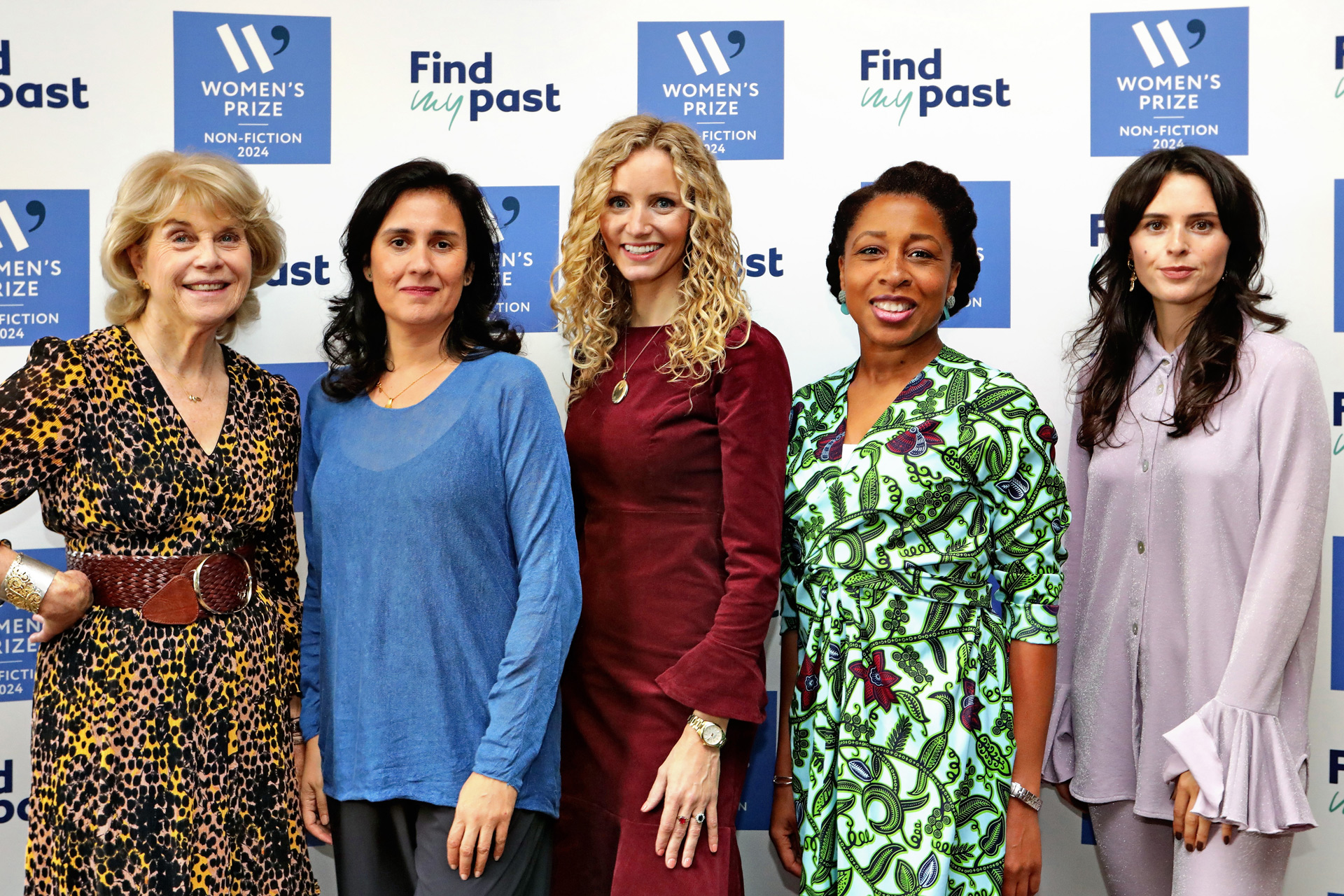
2024 Women’s Prize For Non-Fiction judging panel
Reflecting on the announcement, Ali said: ‘I’m excited to embark on this literary treasure hunt, and deeply curious about what I’ll learn in the process about how women writers are choosing to engage with the world right now. I’m looking forward to reading across a broad range of styles, stories and cultures, discovering what themes might emerge, and pinpointing those singular voices that really stand out from the crowd.’
What Do You Win?
The Women’s Prize may be a prestigious accolade, but that’s not all it is: winners of both the Women’s Prize for Fiction and the Prize for Non-Fiction receive £30,000, plus a limited-edition statuette. The winner of the Women’s Prize for Fiction wins The Bessie, a bronze sculpture created by artist Grizel Niven. The winner of the Women’s Prize for Non-Fiction wins The Charlotte, a bronze-cast sculpture created by Ann Christopher RA FRSS.
Find out more at womensprizeforfiction.co.uk


